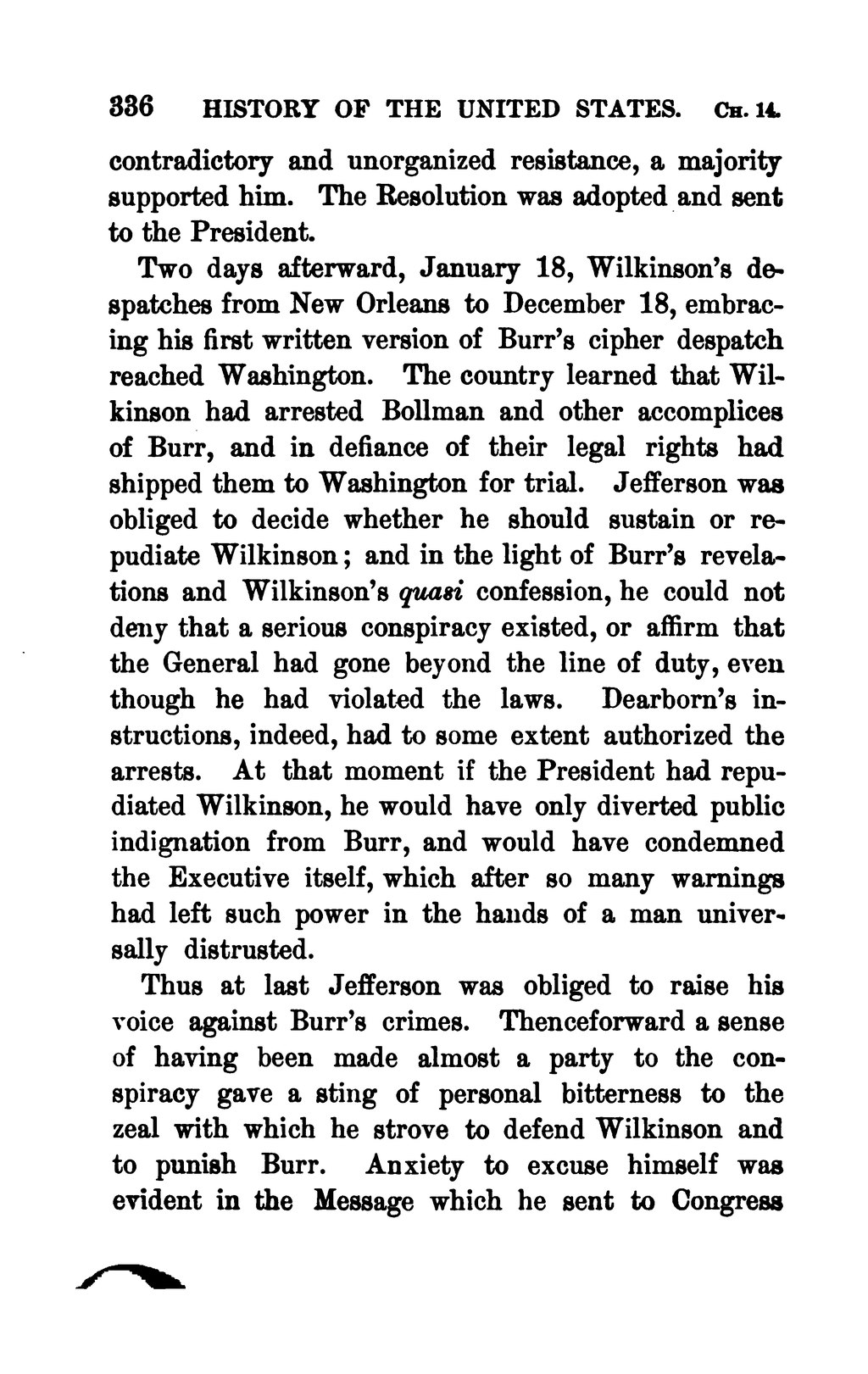contradictory and unorganized resistance, a majority supported him. The Resolution was adopted and sent to the President.
Two days afterward, January 18, Wilkinson's despatches from New Orleans to December 18, embracing his first written version of Burr's cipher despatch reached Washington. The country learned that Wilkinson had arrested Bollman and other accomplices of Burr, and in defiance of their legal rights had shipped them to Washington for trial. Jefferson was obliged to decide whether he should sustain or repudiate Wilkinson; and in the light of Burr's revelations and Wilkinson's quasi confession, he could not deny that a serious conspiracy existed, or affirm that the General had gone beyond the line of duty, even though he had violated the laws. Dearborn's instructions, indeed, had to some extent authorized the arrests. At that moment if the President had repudiated Wilkinson, he would have only diverted public indignation from Burr, and would have condemned the Executive itself, which after so many warnings had left such power in the hands of a man universally distrusted.
Thus at last Jefferson was obliged to raise his voice against Burr's crimes. Thenceforward a sense of having been made almost a party to the conspiracy gave a sting of personal bitterness to the zeal with which he strove to defend Wilkinson and to punish Burr. Anxiety to excuse himself was evident in the Message which he sent to Congress
